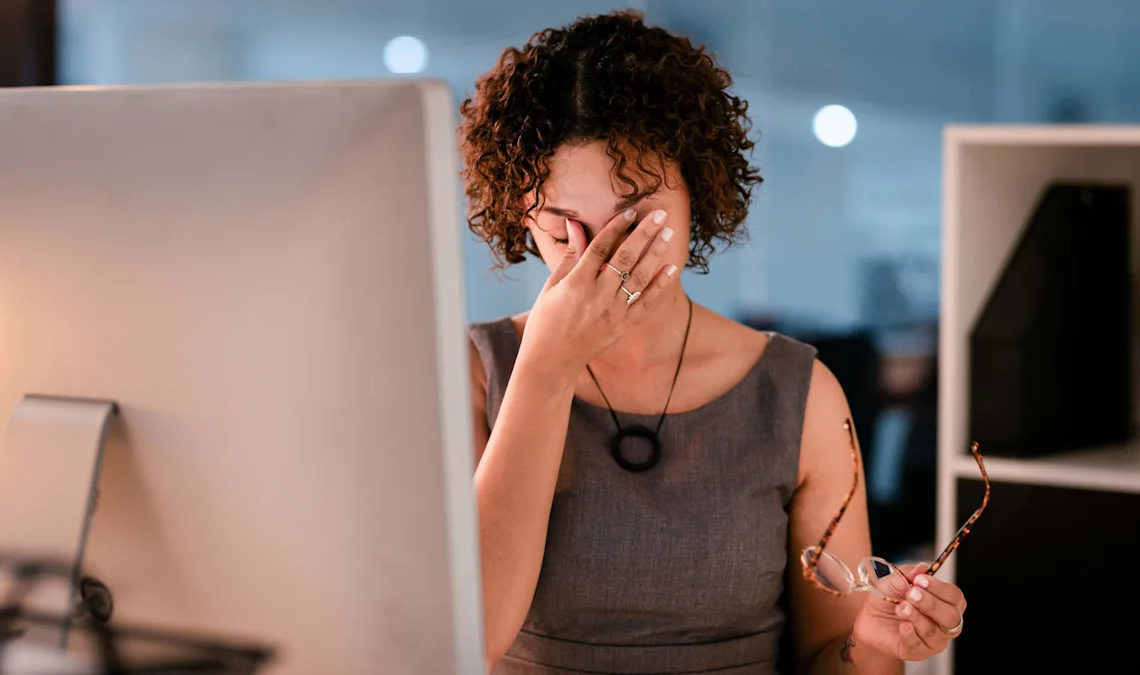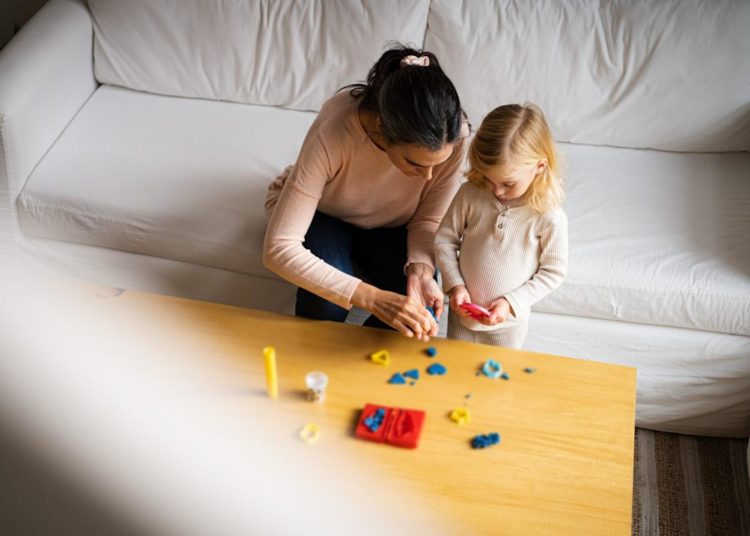Anxiety is one of the most common mental health concerns in the world. According to the National Institute of Mental Health, about one in three people will experience an anxiety disorder at some point in their lives. But after over a decade of working as a licensed mental health counselor who specializes in anxiety, I firmly believe that anxiety isn’t the problem. Yes, I said what I said. Hear me out:
The problem is that we don’t understand what anxiety is, and without that foundational knowledge, we’re at a disadvantage. We don’t learn to recognize anxiety’s function and inevitably miss the early signals, mislabel what we’re feeling, and eventually become overwhelmed by poorly managed symptoms. This misunderstanding is at the root of a lot of unnecessary suffering.
Before we go any further, if you have ever blamed your anxiety, please know that in this article, I do not blame you. I used to do the same. Like many, this critical blame and shame spin cycle only made everything worse. How do we get there? Most of us are not informed about mental well-being throughout our lives. Mental hygiene and psychoeducation is not a cornerstone of our education, and boy, I wish it were. So please know you are not at fault for not knowing the basics of anxiety, and therefore misunderstanding it. Now that you know, it is your prerogative to fill that gap. I hope these 10 essential points I wish everyone knew about anxiety help to point you in the direction of mental wellbeing.
1. What exactly is anxiety?
Anxiety is a natural human emotion. It’s a sense of unease or worry about what might happen in the future. When it becomes excessive, persistent, and interferes with daily life, that’s when it crosses into the territory of an anxiety disorder. While anxiety disorders are among the most common mental health concerns, not everyone will experience an anxiety disorder, yet it is expected that most people will endure anxiety at some point in their lives.
2. Anxiety is natural, and necessary.
You’re supposed to experience anxiety. Yes, really. Anxiety is your body’s alert system, designed to protect you from danger. Early humans relied on this reaction to survive life-threatening encounters. Our bodies haven’t fully adapted to modern-day stressors, so even when the threat isn’t life or death, your body may still respond like it is. Not to mention, many of us are exposed to several stressors daily that may be valid triggers for anxiety. While it may be uncomfortable, anxiety is just doing its programmed job to alert you.
3. Anxiety isn’t the enemy.
We often view anxiety as something to defeat, but what if it’s actually trying to help? Anxiety is your body’s way of saying, “I’m not sure we’re safe.” It wants to protect you. That racing heart or tight chest? It’s your nervous system’s effort to prepare you for something it perceives as a threat-even if that threat is a presentation, a conversation, or a crowded grocery store.Understanding this can help us stop fighting our anxiety and start listening to what it’s trying to say.
4. Anxiety doesn’t have a standard look
Some common signs include restlessness, muscle tension, difficulty concentrating, irritability, and sleep issues. Oftentimes symptoms can be held in the body and an observer may not even be able to tell. On top of that, some people living with persistent anxiety are able to function, causing our minds to trick us into believing they are free from anxiety. Whatever image you have in your mind of a person who lives with anxiety is probably only accuate for a fracton of the people who work hard to manage daily anxiety.
5. We respond differently
There are four common responses to anxiety: fight, flight, freeze, and fawn. These reactions are shaped by both biology and past experiences. When danger is detected, the fight response means the body deduces you are capable to handle the treat directly. On the opposite hand, if the body discerns your best bet is to flee the situation altogether you have a flight response. Sometimes in overwhelm the body sends signs to stay put and quiet and other times the body turns up the trickery and charm to distract from danger. None of these are right or wrong, they are contextual and survival-based. Over time, our body crunches the data and has a preferred response, however, as each scenario differs the respective response may as well.
6. Don’t fall prey to ridicule
It’s tempting to minimize, rationalize, or jeer at triggers. It may work, but in my clinical work with folks working through anxiety probelms it seems that these are temporary solutions. You may end up mocking the body’s attempt to protect you and over time our cues can become distorted. This distancing causes a blurry perception of anxiety and doesn’t actually help to understand to resolve the triggers. When this perpetuates, simple anxiety can morph into a problem. What seems irrational may actually be layered, deep-rooted, or even based on real past experiences. Instead of rushing to fix the fear, try sitting with it. Ask: “What might this fear be trying to tell me?”
7. It helps to name the threat
Avoiding anxiety often makes it worse. Sometimes we don’t even know what we’re afraid of, and that ambiguity increases the distress. Taking time to reflect, ideally in a safe, supported space, can help uncover the root of your fear. Yes, this can feel vulnerable and even uncomfortable. But without facing the cause, it’s hard to truly heal the symptoms.
8. We cope differently
People manage anxiety in all kinds of ways. There’s no one-size-fits-all solution but what matters most is that we are actively invested in coping. When it comes to anxiety I always encourage my clients to familiarize themselves with a wide variety of coping skills to manage. Stressors vary and so should our coping strategies. My go-to skill to routinely regulate is a hot power yoga class. The combination of the heat, movement, rest, and meditation packs several of my skills into one and the only thing that gives me the same type of calm is sleep. But can I go to a yoga class every day? Definitely not. I turn to other skills in the moment such as deep breathing, mantras, and my anxiring to help release my anxious energy.
For those of you who have the Self-Love Workbook, there’s a thorough exploration of coping in the self-care chapter.
9. Respecting your anxiety can promote growth
When we stop demonizing anxiety and start listening to it, we can uncover meaningful truths about what we value, what we fear, and what we need. This journey of self-exploration may begin with management and help you delve much deeper into who you are and what makes you alignment, fulfillment, and wholeness look like for you.
10. You can live a healthy life with anxiety.
Living with anxiety doesn’t mean you’re broken. It doesn’t mean you can’t experience calm, joy, or connection.You can have a full, vibrant life with anxiety, and in some ways, because of it. By respecting your feelings, tending to your needs, and finding supportive spaces, healing becomes possible.
If you’re living with anxiety, know that you’re not alone. Millions of others experience this valid struggle with you. You are not weak or any less worthy. With the right tools, understanding, and support, anxiety can shift from something that limits you to something that teaches you.
Want to hear more? You can tune into the full conversation in The Mental Wellness Practice Podcast episode 41.
If you’re struggling with a mental health problem, please consider professional help:
The post 10 things we need to understand to better cope with anxiety appeared first on .



